The lack of a long-term vision keeps Washington’s China policies confused, according to Liza Tobin, a senior director for economy at the Special Competitive Studies Project, and Michael Auslin, a fellow at Stanford University’s Hoover Institution.
The U.S. should pursue a dual-pronged strategy with the end goal of a democratic China, they write for Foreign Policy:
- First, U.S. policy should distinguish between the Chinese people and civilization, on one hand, and the CCP regime, on the other. The United States and other democracies can laud the achievements of the first while contesting the actions of the second. The West should counter CCP narratives that usurp credit that rightfully belongs to Chinese people, who have suffered not only some of the worst humanitarian atrocities in history, but also the daily indignities of life under an authoritarian system that stifles their humanity. At the same time, Washington must acknowledge that younger Chinese are often even more nationalistic than their elders, many Chinese still support the party, and almost all want to see their country play a prominent and powerful role in the world. …
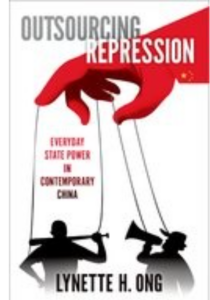 Second, U.S. policy should tirelessly call out CCP leaders’ choices to double down on autocracy, nationalism, and brute force economics. These choices are deeply rooted in the CCP’s ideology and worldview, and they long predate the U.S. shift from engagement to strategic competition. As long as the party remains in power, it is hard to see the Chinese state making a genuine shift toward upholding liberal norms. …. Instead of continuing to blindly pursue an approach that might be appealing in theory but has failed in practice, Washington should work toward a second-best outcome instead. The United States and other democracies should hedge their bets, managing near-term risks while holding out hope that a better future is possible.
Second, U.S. policy should tirelessly call out CCP leaders’ choices to double down on autocracy, nationalism, and brute force economics. These choices are deeply rooted in the CCP’s ideology and worldview, and they long predate the U.S. shift from engagement to strategic competition. As long as the party remains in power, it is hard to see the Chinese state making a genuine shift toward upholding liberal norms. …. Instead of continuing to blindly pursue an approach that might be appealing in theory but has failed in practice, Washington should work toward a second-best outcome instead. The United States and other democracies should hedge their bets, managing near-term risks while holding out hope that a better future is possible.
For some, the rise of China poses an inordinate risk to the global order, notes Brookings analyst Graham Allison coined the phrase “Thucydides Trap” to underscore the risks when a rising power challenges an existing and established rival. It is worth remembering that, in the case of Greek city-states, it was a rising democracy, Athens, that was seen as threatening by an established and less democratic Sparta — a different dynamic than the one between China and the United States today. In the specific case of China, we face an autocratic regime brimming with confidence, a strong desire to bring Taiwan back under its rule, and substantial ambitions in the Western Pacific, broader Middle East, and beyond, he writes in Getting China right: Resoluteness without overreaction:
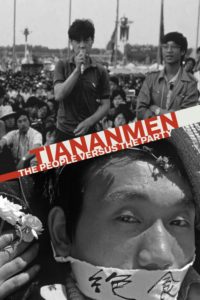 Allison is right to warn in general terms about what such big changes have meant historically. But there is so much different about today’s world — to repeat, the preponderance of democracies (despite recent setbacks, a far higher percentage of the world’s population now lives in countries deemed free or partly free by Freedom House than at any time before the Cold War’s end), the strength of the modern U.S.-led alliance system, forward-stationed American military forces to undergird those alliances, nuclear deterrence, some aspects of globalization — to give considerable reason for hope that past patterns in great-power relations can be changed.
Allison is right to warn in general terms about what such big changes have meant historically. But there is so much different about today’s world — to repeat, the preponderance of democracies (despite recent setbacks, a far higher percentage of the world’s population now lives in countries deemed free or partly free by Freedom House than at any time before the Cold War’s end), the strength of the modern U.S.-led alliance system, forward-stationed American military forces to undergird those alliances, nuclear deterrence, some aspects of globalization — to give considerable reason for hope that past patterns in great-power relations can be changed.
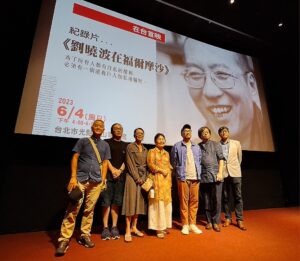
Credit: Liao Liao
On June 4 at 2 pm, about 200 people from all walks of life in Taiwan braved the pouring rain to watch the documentary, Liu Xiaobo in Formosa (right). Many people cried, writes the celebrated writer Liao Liao:
Six years after this gradually forgotten spiritual giant traveled away, this is the first art documentary about him, which originated from a group of forgotten memorial sculptures by Taiwanese artist Edward Cheng. Although anachronistic, I will work to promote this documentary until a memorial sculpture of Liu Xiaobo stands on the coastline of Taiwan facing China.
We have a responsibility to the dead, Liao adds. At least until we pass on, so that they are not forgotten by mankind. This is how the historical legacy of the past and present is formed.
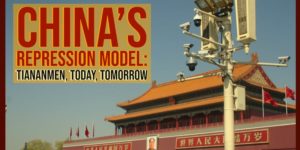
National Endowment for Democracy
Xi Jinping has claimed that China is “democratic” because the CCP and the state represent the people and run the country on behalf of the people to promote the will of the people, Al Jazeera reports. Chinese state media have insisted that liberal democracies neglect the needs of the people by measuring democracy “only” on the basis of electoral cycles
Trying to reinterpret the language on human rights and democracy is therefore not something to be taken lightly, according to Elaine Pearson, the director of the Asia division of Human Rights Watch (HRW). “It is not up to individual states to redefine human rights as they like,” Pearson. “Totalitarian North Korea also calls itself the Democratic People’s Republic of North Korea – simply saying something doesn’t make it true.”
Really, #China‘s overseas police stations are the tip of the iceberg of what is a massive, massive campaign to really crack down on dissent around the world, @SafeguardDefend‘s @LauraHarth told @NewsHour‘s @nickschifrin. https://t.co/9WNEd75Xb6
— Democracy Digest (@demdigest) June 6, 2023

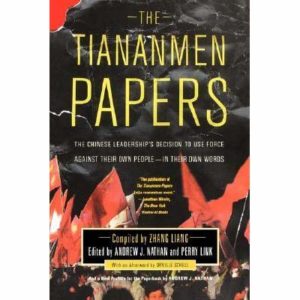 A roundtable event commemorating the 34th anniversary of the Tiananmen Square Massacre,
A roundtable event commemorating the 34th anniversary of the Tiananmen Square Massacre, 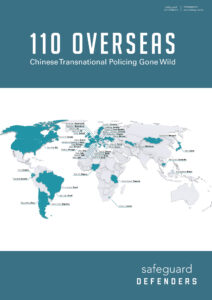 China’s alleged network of more than 100 covert overseas police stations faces growing scrutiny — and sometimes tougher action — from countries where they operate,
China’s alleged network of more than 100 covert overseas police stations faces growing scrutiny — and sometimes tougher action — from countries where they operate, 





